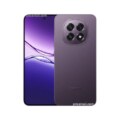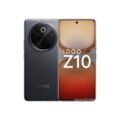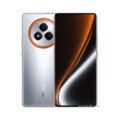- Latest Product
- Product
- Mobiles
- Oppo Reno 11 (china)
Oppo New Device
-->Oppo Reno 11 (china) Full Details
Basic info
| Brand | Oppo |
| Model | Reno 11 |
| Category | Smartphone |
| Status | Released |
| Launch Announcement | November 23, 2023 |
| Launch Date | November 25, 2023 |
Network Connection
| Network Type | GSM / CDMA / HSPA / CDMA2000 / LTE / 5G |
| 2G Network | |
| 3G Network | |
| 3G Bands | HSDPA 850 / 900 / 1700(AWS) / 2100, CDMA2000 1x |
| 4G Network | |
| 4G Bands | 1, 2, 3, 4, 5, 7, 8, 28, 34, 38, 39, 40, 41 |
| 5G Network | |
| 5G Bands | 1, 3, 5, 8, 28, 41, 77, 78 SA/NSA |
| Speed | HSPA, LTE-A (CA), 5G |
| GPRS GPRS (General Packet Radio Service) is a packet oriented mobile data service on the 2G and 3G cellular communication system's global system for mobile communications (GSM), Generally, GPRS is used for the purpose of wireless data transfer, such as sharing pictures and videos or browsing the Internet via a mobile phone connection. |
Body
| Dimensions | 162.4 x 74.1 x 7.6 mm |
| Weight | 184g |
| SIM Card | Dual SIM (Nano-SIM, dual stand-by) |
| Colors | Black, Green, Silver |
| Build | front Gorilla Glass 6, plastic frame |
| Protection | Gorilla class |
Display
| Display Type Display Technology => A number of display technologies and types used in mobile phones => TFT (Thin Film Transistor), IPS (In-Place Switching), OLED (Organic Light Emitting Diode), AMOLED (Active-Matrix Organic Light-Emitting Diode), Super AMOLED (an even advanced version of AMOLED), Resistive Touchscreen (Resistive touchscreens contain two layer of conductive material with a very small gap between them which acts as a resistance), Capacitive Touchsceen (Capacitive touchscreen technology consists of a layer of glass coated with a transparent conductor) | OLED |
| Size | 6.7 inches |
| Ratio | 20:9 ratio |
| Resolution | 1080 x 2412 pixels |
| Pixel Density Pixel Density (PPI) is refers to the concentration of pixels on a particular display, measured in pixels per inch (ppi). Pixel density is calculated by dividing the diagonal pixel resolution of a display by its diagonal size, higher pixel density better display quality. | 394 ppi |
| Multitouch | |
| Display Protection | Corning Gorilla Glass |
| Refresh Rate | 120Hz |
| Features |
1B colors HDR10+ 800 nits (HBM) 950 nits (peak) |
Hardware
| CPU CPU (Central Processing Unit) mostly known as processors, CPU processes instructions in order to carry out certain functions that make your device operate properly. Processors are often described as the brain of computers, smartphones and tablets, Smartphones and tablets rely on processors to carry out their every task, Processors are an incredibly important factor in selecting any type of computing device, including your smartphone. | Octa-core (1x3.1 GHz Cortex-A78 & 3x3.0 GHz Cortex-A78 & 4x2.0 GHz Cortex-A55) |
| GPU GPU (Graphics Processing Unit) is a single-chip processor designed to rapidly manipulate and alter memory to accelerate the creation of images in a frame buffer intended for output to a display, This includes things such as lighting effects, object transformations, and 3D motion. | Mali-G610 MC6 |
| Chipset Chipset is a group of integrated circuits designed to perform one or a more dedicated functions, often with real time computing constraints, Popular smartphones are equipped with more advanced embedded chipsets that can do many different tasks depending on their programming. | Mediatek MT6896 Dimensity 8200 (4 nm) |
| RAM | 8/12 GB |
| Internal Storage Internal Storage is a data storage space (flash memory) mostly used in smartphones, tablets and other electronic devices where operating system, apps, music, photos, videos, files and other user data Is stored. | 256/512 GB |
| Memory Slot | NO |
| Version | 8/256 GB, 12/256 GB 12/512 GB |
| Storage Type | UFS 3.1 |
Software
| Operating System OS => Every computer system run on a base software called Operating System (OS). Operating System controls all basic operations of the computer (such as smartphone, PDAs, tablet computers and other handheld devices). The Operating System allows the user to install and run third party applications (apps), apps are used to add new functionality to the device. | Android |
| Version | 14 |
| User Interface UI or user interface of a device is the look and feel of the on-screen menu system. How it works, its color scheme, how it responds to button presses, all of these things are part of the user interface. | ColorOS 14 |
Main Camera
| camera |
50 MP, f/1.8, 26mm, 1/1.95", PDAF, OIS (wide) 32 MP, f/2.0, 47mm, 1/2.74", 0.8µm, PDAF, 2x optical zoom (telephoto) 8 MP, f/2.2, 16mm, 112˚, 1/4.0", 1.12µm (ultrawide) |
| Features | LED flash, HDR, panorama |
| Video | 4K/30fps, 1080p-30/60/120fps, gyro-EIS |
Selfie Camera
| camera | 32 MP, f/2.4, 22mm, 1/2.74", 0.8µm, AF (wide) |
| Features | Panorama, HDR |
| Video | 4K/30fps, 1080p/30fps, gyro-EIS |
Multimedia
| Loudspeaker | Yes |
| 3.5mm Jack | |
| Audio Features | 24-bit/192kHz audio |
Connectivity
| Wi-fi Wi-Fi is a popular wireless networking technology using radio waves to provide high-speed network connections that allows devices to communicate without cords or cables, Wi-Fi is increasingly becoming the preferred mode of internet connectivity all over the world. | Wi-Fi 802.11 a/b/g/n/ac/6, dual-band, Wi-Fi Direct |
| Bluetooth Bluetooth is a wireless communications technology for exchanging data between mobile phones, headsets, computers and other network devices over short distances without wires, Bluetooth technology was primarily designed to support simple wireless networking of personal consumer devices. | 5.4, A2DP, LE, aptX HD |
| Wi-fi Hotspot | |
| FM Radio | |
| USB | USB Type-C 2.0, USB On-The-Go |
| OTG | |
| GPS | |
| NFC NFC (Near field communication) is a set of standards for smartphones and similar devices to establish peer-to-peer radio communications with each other by touching them together or bringing them into proximity, usually no more than a few inches. |
Security
| Fingerprint | Fingerprint (under display, optical) |
| Sensors Sensors are electronic components that detects and responds to some type of input from the physical environment. The specific input could be light, heat, motion, moisture, pressure and location, The output is generally a signal that is converted to use in computing systems, a location sensor, such as a GPS receiver is able to detect current location of your electronic device. | accelerometer, gyro, proximity, compass, color spectrum |
Power
| Battery Type | Li-Po non-removable |
| Battery Capacity | 4800 mAh |
| Battery Charging |
Fast charging 67W, PD, QC3 Reverse charging |
| Fast charging | |
| Wireless Charging |
Price
| United States Price in United States. price us |
8/256 GB- 390$ (About) 12/256 GB- 450$ (About) 12/512 GB- 490$ (About) |
| China Price in China |
8/256 GB- 2499¥ (official) 12/256 GB- 2799¥ (official) 12/512 GB- 2999¥ (official) |
Oppo Reno 11 (china) Pictures
-
What are the key features of the Oppo Reno 11’s display?
The Oppo Reno 11 features a vibrant OLED display with 1 billion colors, a 120Hz refresh rate, HDR10+, and impressive brightness levels of 800 nits (HBM) and 950 nits (peak). With a 6.7-inch screen, users can expect a stunning visual experience.
-
What camera capabilities does the Oppo Reno 11 offer?
The smartphone boasts a versatile triple camera setup, including a 50 MP wide lens with PDAF and OIS, a 32 MP telephoto lens with 2x optical zoom, and an 8 MP ultrawide lens. These features, coupled with advanced camera technologies, enable users to capture high-quality photos and videos.
-
What makes the Oppo Reno 11 a powerful performer?
Powered by the Mediatek MT6896 Dimensity 8200 chipset and an octa-core CPU, including Cortex-A78 cores, the Oppo Reno 11 ensures smooth performance. With memory configurations of up to 512GB storage and 12GB RAM, users can expect a responsive and efficient user experience.
-
How fast is the charging capability of the Oppo Reno 11?
The Oppo Reno 11 supports 67W wired charging, with an advertised 1-50% charge in just 19 minutes. This rapid charging feature ensures users spend less time tethered to a charger and more time using their device.
-
What connectivity features does the Oppo Reno 11 offer?
The Oppo Reno 11 comes equipped with modern connectivity options, including Wi-Fi 6, Bluetooth 5.4, NFC with eSE, HCE, NFC-SIM, and eID support. It also features an infrared port, making it a well-connected device for various communication needs.
You can visit Oppo Reno 10



















